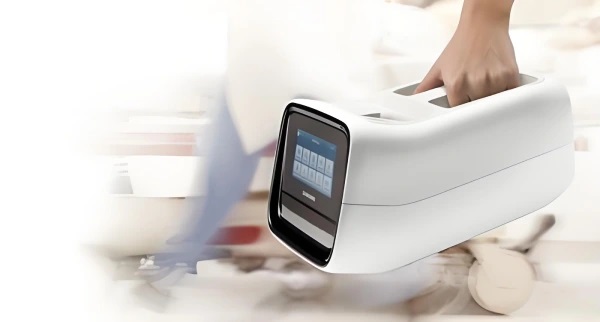Common rechargeable batteries for medical device batteries include nickel metal hydride batteries, nickel-cadmium batteries and lead-acid batteries. With the outstanding advantages of lithium batteries in terms of cost, safety, and longevity, most medical equipment currently uses lithium-ion batteries (packs) or lithium-ion batteries instead. However, there are still very few medical devices still in use nickel metal hydride or lead acid batteries.

Part 1. 10 medical device batteries features
Batteries for medical devices have the following 10 characteristics:
1. safer
Regarding medical equipment, safety is, of course, the first priority. Lithium batteries dedicated to medical equipment generally use 18650 lithium batteries or polymer lithium batteries. The good consistency of 18650 batteries and the good safety performance of polymer batteries have greatly improved the safety and stability of lithium batteries and battery packs.
2. Higher energy density ratio
Lithium-ion battery packs are smaller in size. Lithium batteries store higher electrical energy in the same volume compared to other medical device batteries.
3. Better cycle performance
The charge and discharge times of medical device lithium batteries are generally greater than 500 times. The discharge rate is between 0.5C and 10C. The performance of medical device lithium batteries completely exceeds that of early lead-acid or nickel-metal hydride batteries.
4. Longer battery life
Because lithium batteries have a higher energy density ratio, they provide longer battery life than lead-acid or nickel-metal hydride batteries at the same weight.
5. Better charging capacity
When a fully charged medical device lithium battery (pack) is idle for 3 months, its charge capacity still exceeds 80%. The charge capacity of lead-acid or nickel-metal hydride batteries is only about 40%.
6. Better high and low temperature performance
Medical device lithium batteries (packs) can work normally at -20°C. Lead-acid or nickel-metal hydride batteries can operate normally at a minimum of -10°C.
7. Wide operating temperature range
Medical device lithium batteries (packs) operate from -20°C to 60°C. For example, the low-temperature lithium battery or high-temperature lithium battery customized by Ufine Battery has an operating temperature range of -40°C or 85°C.
8. Lithium battery has a low self-discharge rate
The self-discharge rate of lithium-ion batteries is related to the thermodynamic instability of lithium-intercalated carbon materials in non-aqueous electrolyte systems. During the first charge and discharge process, a layer of solid electrolyte interphase (SEI) film will be formed on the carbon-negative electrode’s surface due to the electrolyte’s reduction. Lithium ions are allowed to pass through, but not electrons. And make the electrode active materials of different charge states relatively stable.
At the same time, the current lithium battery material system is mature, the production and manufacturing process is highly automated, and the product consistency is good, so it has a low self-discharge rate.
9. Customizable shapes
Due to the particularity of medical devices, you can find professional lithium battery manufacturers like Ufine Battery to customize medical device batteries. By choosing Ufine Battery, the thickness and shape of medical device batteries can be changed according to different medical devices to meet their needs.
10. Green and environmentally friendly
Medical device batteries (packs) do not contain lead, chromium, mercury, and other toxic and harmful substances. At the same time, because medical device batteries must be well sealed, very little gas is released during use and does not cause environmental pollution.
Part 2. Medical device batteries type
As the demand for portable medical electronic equipment increases, the demand for lithium batteries for medical equipment also increases. There are many types of lithium batteries used in medical devices. The types of medical device batteries are mainly customized according to the actual needs of medical devices.

Types of lithium batteries for medical equipment can be classified from the following perspectives:
1. Types of lithium batteries
Lithium batteries include lithium-ion batteries, lithium iron phosphate batteries, and lithium polymer batteries. What kind of lithium battery to use mainly depends on the performance requirements of the medical device for lithium batteries.
2. Discharge performance
Lithium batteries are classified according to discharge performance into conventional discharge lithium batteries, high-rate lithium batteries, low-temperature batteries, etc. These are also medical device batteries customized for specific applications.
3. Shape of lithium battery
Lithium batteries can be divided into cylindrical lithium batteries, prismatic lithium batteries, and lithium polymer lithium batteries according to their shape. The first two types are unsuitable for electronic medical devices due to their fixed shapes. But polymer lithium batteries are different. Their shapes can be customized and can be applied to most medical devices.
The portability of medical equipment functions and home-based product applications have become the development trend of the entire industry. Therefore, many portable wireless electronic medical devices have appeared, so there are many types of lithium batteries for medical devices.
Part 3. Advantages of medical device batteries
Lithium polymer medical device batteries are commonly used in medical equipment for outdoor rescue defibrillation monitors, blood pressure monitors, wearable blood oxygen monitors, palm-held ECG monitors, wearable single-lead ECG monitors, etc.
1. Safer
Most medical device batteries use lithium polymer batteries. This is different from the metal casing of a liquid battery. If a dangerous accident occurs, liquid batteries are very easy to explode. And medical device batteries will only bulge.
2. Volume and shape
The
wall thickness of lithium polymer batteries is small and can be as thin
as 0.45mm. At the same time, it can withstand certain bending or
twisting conditions without affecting the performance of medical device
batteries. However, there are still technical bottlenecks in the wall
thickness of liquid lithium-ion batteries below 3.6mm.
3. Lighter
Medical device batteries use lithium polymer batteries, which are relatively light in weight. The weight is 40% lighter than steel-cased lithium batteries with the same capacity and specifications and 20% lighter than aluminum-cased batteries.
4. Customizable
The
shape of lithium polymer batteries can be customized. For example,
Ufine Battery can increase or decrease battery wall thickness or change
the shape of medical device batteries according to customer needs to
improve the performance of medical devices.
5. Capacity
Compared
with steel-cased batteries of the same size and specification, medical
lithium polymer batteries have a 10-15% higher capacity and 5-10% higher
than aluminum-cased batteries.
6. Resistor
Lithium polymer batteries are manufactured using lamination processing technology. After special design, the impedance of medical device batteries can be greatly reduced, and the performance of high-current discharge of medical device batteries can be greatly improved.
Part 4. Application of medical device batteries
1. Portable medical device batteries
As people demand convenient and efficient medical services increases, portable medical equipment has become a trend. Lithium batteries’ high energy density and long life allow portable medical devices to be used longer and more conveniently for patients. For example, portable electrocardiographs, blood pressure monitors, blood glucose meters, and other equipment can use lithium batteries as power sources to provide long-term monitoring and recording functions.
2. Wireless medical device batteries
Lithium batteries’ high energy density and stability make it possible to make medical devices wireless. Using lithium batteries as power sources, medical equipment can get rid of traditional wired connections and achieve wireless transmission and remote monitoring. For example, wireless heart monitors, blood pressure monitors, and other devices can be connected to mobile phones or computers through Bluetooth or Wi-Fi to achieve real-time data transmission and remote monitoring.
3. Electronic prosthetics and hearing aid batteries
The
high energy density and long life of lithium batteries make the use of
medical devices such as electronic prostheses and hearing aids more
convenient and long-lasting. Lithium batteries can provide stable power
to ensure the normal operation of electronic prostheses and hearing
aids. At the same time, the lightweight characteristics of lithium
batteries also make electronic prostheses and hearing aids more
comfortable.
4. Smart bracelets and smartwatch batteries
As important devices for health monitoring, smart bracelets, and smart watches usually require long-term use. The high energy density and long life of lithium batteries can ensure long-term use of smart bracelets and smart watches. They can also provide stable power to ensure the normal operation of the equipment.
5. Thermometer and oximeter
Thermometers
and oximeters are important equipment for health monitoring and are
often used in home environments. The environmental protection and long
life of lithium batteries allow thermometers and oximeters to be used
for a long time, reducing environmental pollution. At the same time, the
high energy density of lithium batteries can also provide a stable
power supply to ensure the accuracy and reliability of the device.
6. Remote monitoring of health monitoring equipment
Lithium batteries’ high energy density and stability enable remote monitoring of health monitoring devices. By using lithium batteries as power sources, health monitoring equipment can achieve real-time data transmission and remote monitoring. For example, remote ECG monitoring equipment can be connected to a mobile phone or computer through Bluetooth or Wi-Fi to achieve real-time transmission and remote monitoring of ECG data.
Part 5. Summary
Medical device batteries, especially lithium batteries, have high energy density, long life, and environmental protection, making them an ideal power source choice in the field of medical devices and health monitoring, providing people with more convenient and efficient medical services and health monitoring methods.
BENZO Energy Technology Co.,Ltd
UFine Technology Co., Ltd
![]() TEL: +86-755-84822012
TEL: +86-755-84822012
![]() TEL: +86-13538185686
TEL: +86-13538185686
![]() Email: contact@benzoenergy.com
Email: contact@benzoenergy.com
![]() Email: sales02@benzoenergy.com
Email: sales02@benzoenergy.com
![]() Email: sales03@benzoenergy.com
Email: sales03@benzoenergy.com
![]() Email: sales01@benzoenergy.com
Email: sales01@benzoenergy.com
![]() Skype: benzobattery1231@gmail.com
Skype: benzobattery1231@gmail.com
![]() Office Address:Building C1, Bantian International Center, BanTian Street, Longgang area, Shenzhen City, China
Office Address:Building C1, Bantian International Center, BanTian Street, Longgang area, Shenzhen City, China
![]() Factory Address 1: Luoma Second Bridge, Tiansheng Lake Villager Group, Luoma Village, QingXi Town, DongGuan, China
Factory Address 1: Luoma Second Bridge, Tiansheng Lake Villager Group, Luoma Village, QingXi Town, DongGuan, China
![]() Factory Address 2: Building
41, Zhongnan HighTech Rongzhi Chuangmei Industrial Valley, Siqian Town,
Xinhui District, Jiangmen City, Guangdong, China
Factory Address 2: Building
41, Zhongnan HighTech Rongzhi Chuangmei Industrial Valley, Siqian Town,
Xinhui District, Jiangmen City, Guangdong, China
Site: www.bz-battery.com / www.benzoenergy.com
Comments
Post a Comment